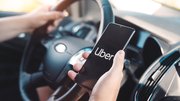News
No time for talk in a self-service world?
It's becoming easier to run the most mundane errands without human intervention, thanks to kiosks. Will customer service and communication improve as a result?
April 24, 2005
A recent news bit on KIOSKmarketplace.com questioned whether self-service technology would put an end to idle conversation. It's becoming easier to run the most mundane errands without human intervention. From pumping gas and buying groceries, to ordering food and mailing a package - we're pretty much on our own.
Since ATMs paved the way for kiosks, doing it ourselves is often preferable to standing in line or speaking to clerks, even the most helpful ones. We believe that no one can serve us better than ourselves. And, if we give ourselves less-than-perfect service (like touching the button for tomatoes instead of onions), we won't complain. It's our own fault. Even if we do it wrong, we are proud to have done it ourselves.
Self-service certainly isn't going away. The growth of the digital photo market is one indicator, as is the prevalence of airport check-in kiosks. This past year saw the advent of music and ringtone downloads at the kiosks. Even McDonald's is getting into the act with its DVD-rental kiosk.
Does the growing number of self-service devices mean that people don't talk anymore? Or, are we saving our time and energy to have more meaningful conversations with say, our family and friends? Does it really matter?
Getting down to business
Sandra Nix, owner of D2 Sales, is quite blunt when it comes to choosing self-service. "I'm there for a transaction," pointed out Nix. She prefers using a self-service device because she's not looking for social interaction when banking or checking out, for example. For Nix, social interaction is a more conscious choice. "I have a lot of friends who are interesting people. I enjoy spending time with them."
Nix added that she likes the consistency offered by devices such as kiosks. You don't get the same level of service when dealing with employees as you do with a "purpose built machine," she commented.
Results of a poll on retail.com's discussion page indicate that 63 percent of respondents feel that customer service has gotten worse because of advancements in self-service and retail technologies.
Perhaps our perception of what constitutes good customer service has changed. Maybe we expect too much. After all, how can anyone's service compare to our own? Perhaps self-service technology will bring about a new level of customer service simply because the more mundane tasks have been automated.
Alex Richardson is managing director of Karter Capital Advisors and a member of the Kiosks.org Associationadvisory board. He recalled a bank clerk's help when he needed to deposit checks damaged in the mail. Although he rarely steps foot in the bank for routine deposits, in this instance Richardson appreciated the level of service the bank employee provided.
Of course, not everyone would agree that self-service is the best service. There are those who may miss the social interaction offered by trips to the store, the coffee shop or the dry cleaners. These "third places," as Florida urban sociologist Ray Oldenburg has identified them, are gathering places between home (first place) and work (second place).
Oldenburg, who has written extensively on the subject, considers these third places as vital to a community. However, in many third places, people are talking on cell phones, listening to music and using laptops. Multi-tasking no matter where we are is not unusual.
The need to be social while running a simple errand can be generational, in part. Richardson recalled his mother's trips to the post office to pick up her mail. For her, it was more of a social outing rather than a routine task. He, on the other hand, feels quite differently. "My goal is to spend more time with my family," said Richardson.
The desire for more social interaction is what prompted Richardson to enter the self-service world in the first place. Forced to spend too much time in long cafeteria lines in college left him too little time to meet with friends over lunch. Automating mundane tasks actually gives people more time to spend doing things they want to do, Richardson explained. He feels that the net effect of self-service is an improved quality of life for those using it.
See related stories:
Will self-service bring an end to idle conversation?
McDonald's to install DVD rental kiosksCash in on the prepaid wireless market









